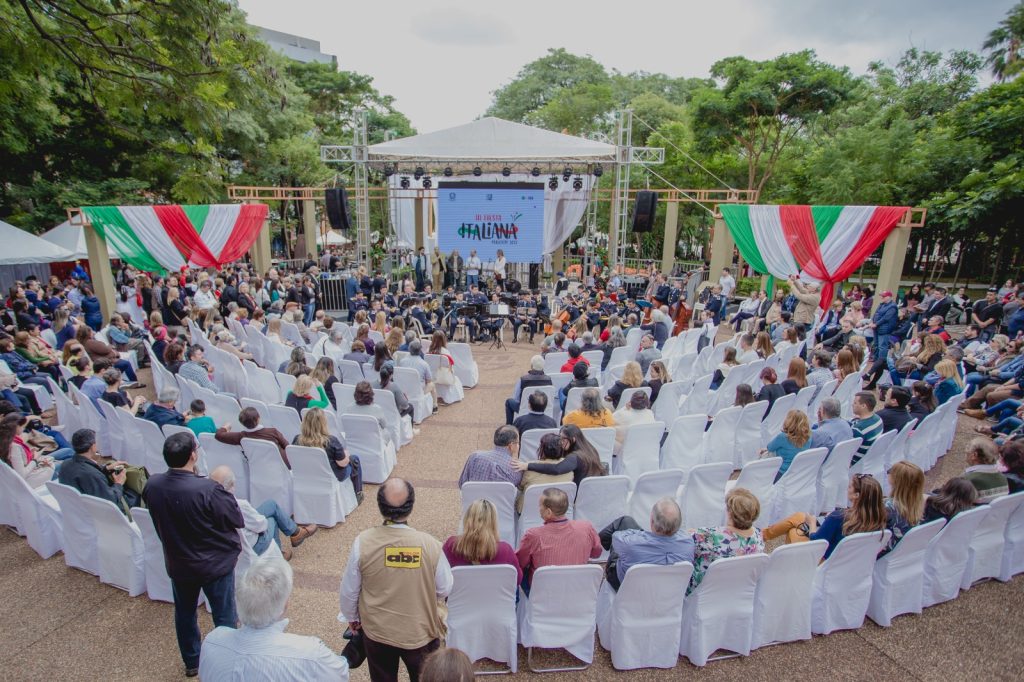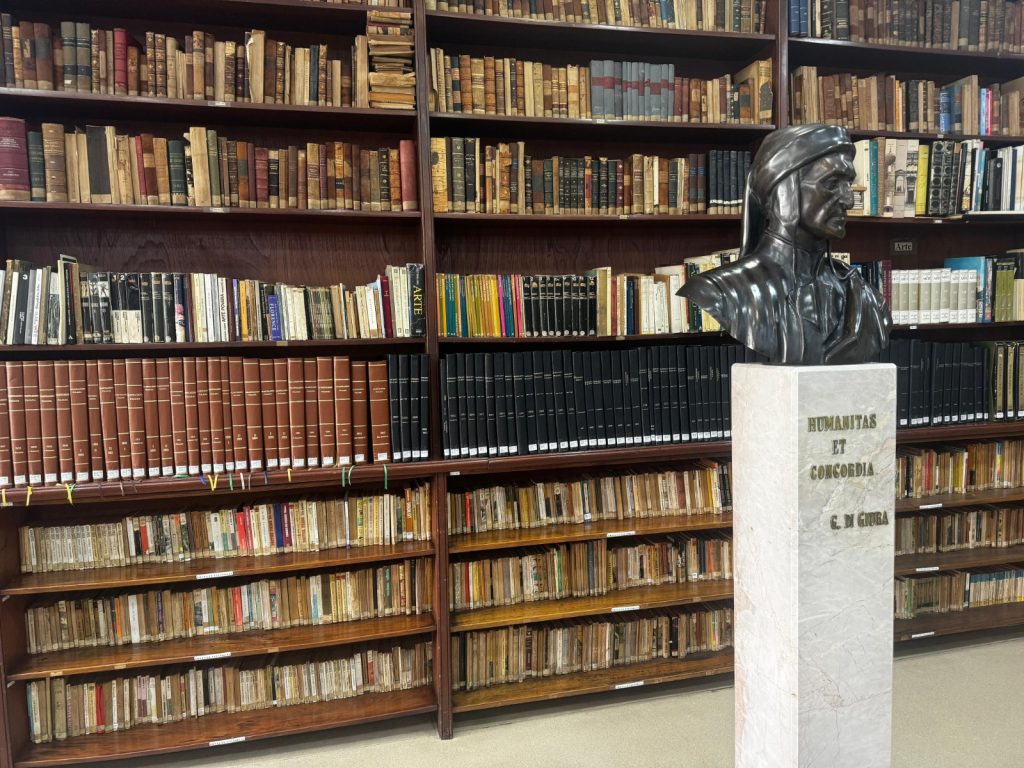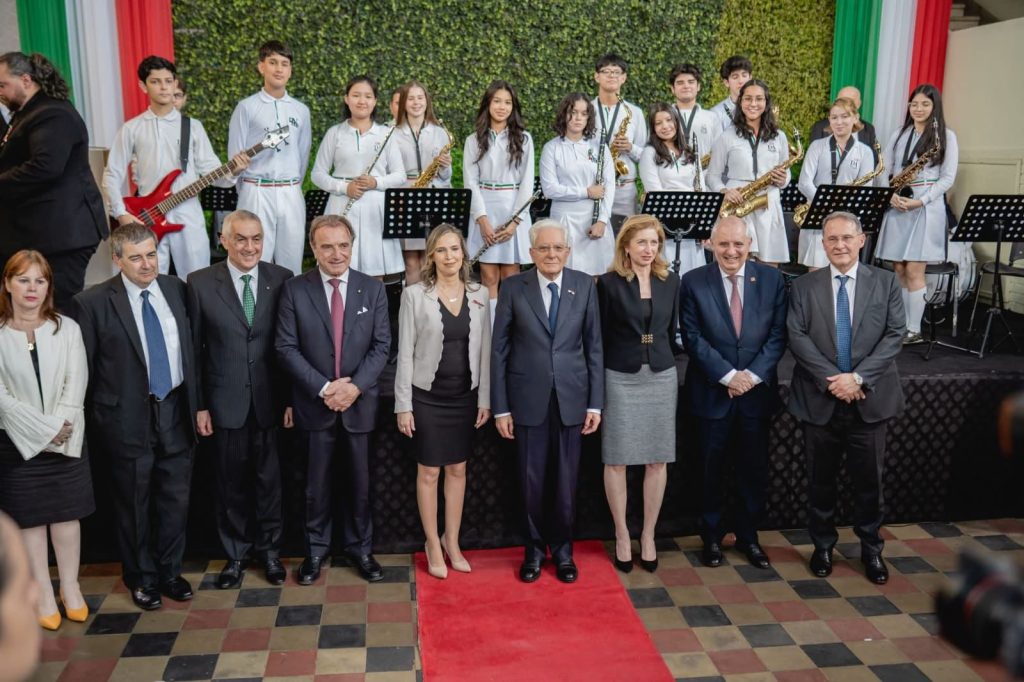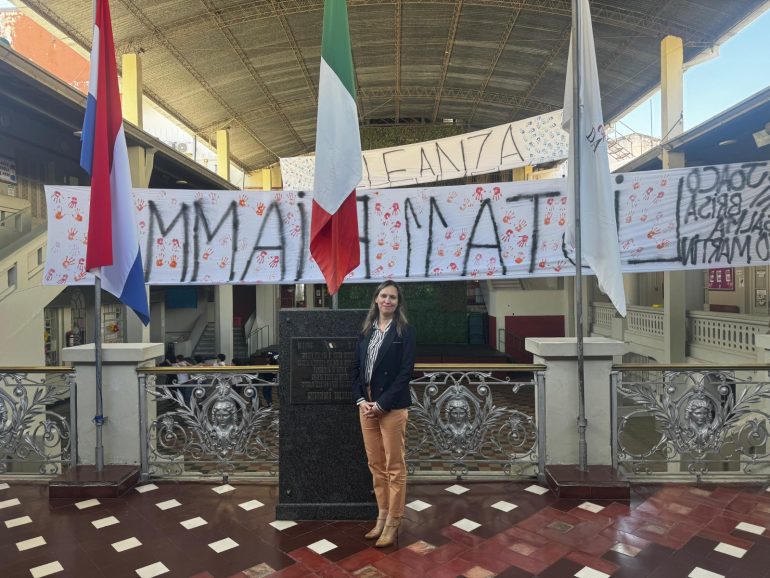In Asunción, the fragrance of freshly baked Paraguayan chipa blends with the robust aroma of Italian espresso, and plates of sopa paraguaya sit alongside creamy tiramisù. In the heart of the capital, where the pulse of Paraguayan life meets the timeless elegance of Italian heritage, the Dante Alighieri Society (Sociedad Dante Alighieri) and its president Viviana Ruggero stand as a cultural bridge.
The Dante Alighieri Society is a non-profit organisation founded in 1929 to promote Italian language, literature, and culture worldwide, while strengthening ties between Italian expatriates and their homeland. For Paraguay’s Society president Ruggero, preserving Italian culture in her country is both a personal inheritance and a public mission for just over ten years now. The Asunción Times sits down with her.
Dante Alighieri Society: two main areas
The work of the Dante Alighieri Society can be divided into two main areas, Ruggero explains. Education – through the Society’s two schools and its Italian language institute – and cultural promotion through events that attract both Italian descendants and “Italsympathics”. For Ruggero, being in charge of the Society is both an honour and an emotional experience, as she is herself of Italian descent.
“My heart is half Paraguayan, half Italian,” she says. “For me, Italian is part of my everyday life. As a Paraguayan, sometimes when I get angry, I use Guaraní language, Italian, or both. The connection to Italy is always present in my daily life, and I hope my children keep it alive as well.”
Ruggero has been in charge of the Dante Alighieri Society since 2014, but her connection to the institution goes back nearly 40 years, when she first became a member to access its library. She first joined the board of directors in 1999. After a short hiatus for family reasons, she returned in 2012, with her children already studying at the Dante Alighieri School, which the Society manages. Two years later, she became president, a role she continues to hold today.

The famous ‘Festa in Piazza’
Viviana Ruggero feels especially proud of working alongside the Italian Embassy and other Italian institutions to unite the Italian community in Paraguay while promoting Italian culture.
“Our goal is to promote Italian culture in Paraguay, and we are deeply committed to it. That is why the Society is not only about the school, but also about organising events such as La Festa Italiana.”
The Festa, held every June 2nd worldwide, takes place in Plaza Italia in Asunción. Also known as Festa in Piazza, it is one of the Society’s most important cultural events, organised together with the Italian Embassy. “The Festa Italiana attracts people who may not attend our concerts or conferences but enjoy Italian food, language, dances, songs, and poetry.”
The Christmas Market
Another popular event is the Mercatino di Natale (Christmas Market), which saw its first edition in 2020. The 2025 edition will move from Italy Plaza to the port of Asunción to attract more visitors, especially due to weather conditions.
“We also organise concerts, art exhibitions, anything we can to promote Italian culture. We would like to do even more, but of course the economic factor is always present. About 30 percent of the Paraguayan population is of Italian descent, plus many ‘Italsympathics,’ as we call those who appreciate Italian culture. It is a very fertile field of work. You do not need to study or speak Italian to participate in our cultural events of general interest.”
The Society also brings events provided by the Italian Ministry of Foreign Affairs and the Dante Alighieri headquarters in Rome, which are open to the public. For example, they recently hosted a conference on how Italian immigrants contributed to developing Paraguay’s electrical system. Later in 2025, they will present Dante’s Divine Comedy translated into Guaraní, with public readings in Asunción, Corrientes, and Mar del Plata.
Dante Alighieri School’s impact
“As a former student, not only as president but also as a mother whose children studied at the Dante Alighieri School, I feel proud of the work and legacy the school has left in Paraguayan society. We are always striving to improve. Seeing former alumni bring their grandchildren to the school fills me with joy. That is when you realise the work is truly worthwhile.”
Ruggero is deeply moved by the impact of the Dante Alighieri School on its graduates. “You are always dealing with time issues, since the work here is very demanding. We manage events throughout the year, in addition to overseeing the educational institutions. But in the end, it leaves you with a sense of joy and pride that makes it worthwhile.”
Since this year, Ruggero has also been part of the Central Council, the global board of directors of all Dante Alighieri schools, based in Rome. “It is not only about what happens here in Paraguay, but also solving issues with the headquarters. Last year, I travelled twice to Rome to attend meetings there. This year, I had to delegate that responsibility due to lack of time. Facing these kinds of challenges makes leading the institution an even greater honour.”


Viviana Ruggero’s Italian side
“There are people who say you cannot love two countries equally at the same time. I disagree. I believe you can. I sing both anthems with the same passion.”
Although her parents did not speak Italian, they instilled in her the culture and values of their father´s homeland. One of Ruggero’s most cherished memories was the visit of the President of Italy to the school. “Children were cheering for him. It was an unforgettable moment in my life and one I will always treasure. And when the Paraguayan Minister of Education travelled on an official visit to Italy, we advised and provided him with information to make his trip easier.”
“Experiences like that keep me motivated, along with the love for Italy that my parents and grandparents passed down to me. They taught me the culture, the passion for their country, and I dream of my children doing the same.”
For Viviana Ruggero, preserving Italian culture in Paraguay is both a personal inheritance and a public mission. One that she hopes will continue to inspire future generations to embrace language, culture and shared history.


